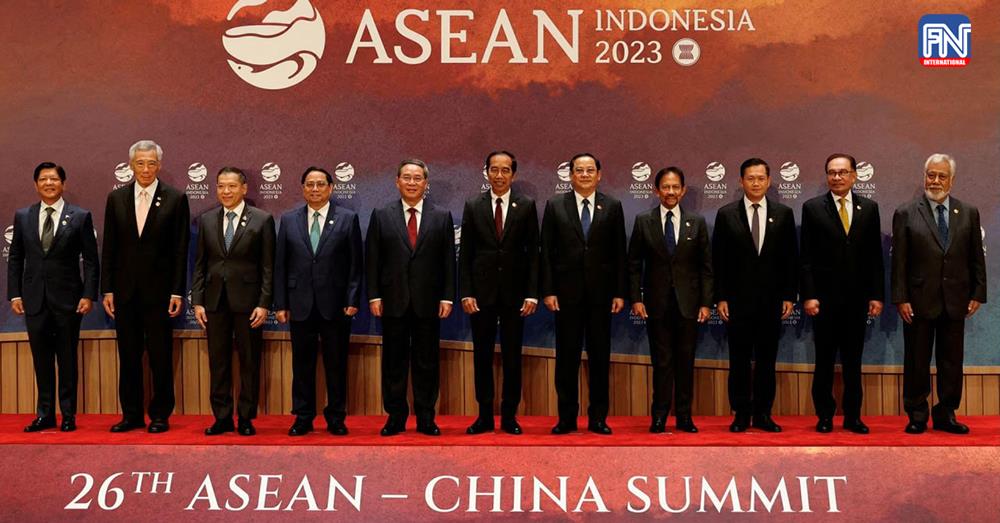JAKARTA, Sept 6 (Reuters) - Southeast Asia's ASEAN bloc on Wednesday welcomed world leaders to Indonesia's capital for a summit likely to be dominated by worry about rivalry between the United States and China overshadowing the region.
The Association of Southeast Asian Nations (ASEAN), which has warned of the danger of getting dragged into other powers' disputes, will gather with U.S. Vice President Kamala Harris, Chinese Premier Li Qiang, and leaders of various partner countries including Japan, South Korea, Australia, and India.
Neither U.S. President Joe Biden nor his Chinese counterpart, Xi Jinping, are attending the summit.
High on the agenda is Southeast Asian concern over China's activities in the South China Sea, a strategic trade corridor where several member countries have overlapping claims with China. The bloc is keen to agree on a long-discussed code of conduct for the waterway.
The United States and its allies have echoed ASEAN's calls for freedom of navigation and overflight and to refrain from building a physical presence in the area. China has built various facilities, including runways, on tiny outcrops in the disputed waters.
"The vice president will underscore the United States' and ASEAN's shared interest in upholding the rules-based international order, including in the South China Sea, in the face of China's unlawful maritime claims and provocative actions," a White House official said on Tuesday.
Just before this week's gatherings, China released a map with its "10-dash line" delineating what it considers its waters, that appeared to expand its claims in the South China Sea.
The map was rejected by several ASEAN members.
Some ASEAN members have developed close diplomatic, business and military ties with China while others are more wary. The United States has also courted ASEAN countries with varying degrees of success.
ASEAN, in a draft of a statement it will issue this week and seen by Reuters, said it needed to "strengthen stability in the maritime sphere in our region ... and explore new initiatives towards these ends".
